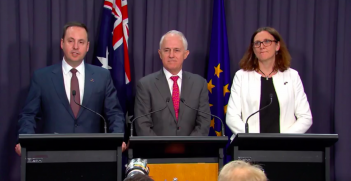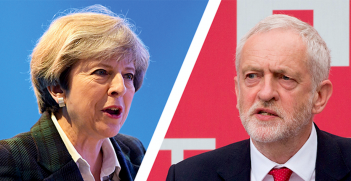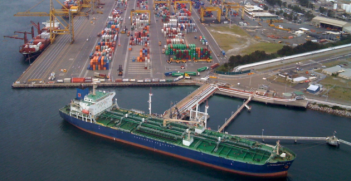Australia’s Role as International Trade Rule-Maker

Australia is playing a major role in international economic rule-making through its aggressive pursuit of preferential trade agreements. So how well do the trade rules it is promoting help advance Australia’s foreign policy objectives?
Despite America’s recent bout of protectionism and unilateralism, appetite for international trade rules in many countries remains very strong. The swift conclusion of the recently revived Trans-Pacific Partnership (TPP-11) negotiations is a case in point. Thanks to this appetite, there is currently more rule-making going on around the globe than rule-breaking. Australia is playing a major role in this rule-making through its aggressive pursuit of preferential trade agreements (PTAs).
Since the stalling of the WTO in the early 2000s, PTAs have become the primary site of international rule-making in trade and investment. In its 2017 Foreign Policy White Paper, the Australian Government identified PTAs as a key tool to advance its foreign policy objectives, from defending the rules-based order against protectionism to ensuring that emerging economies abide by liberal economic principles. So how well do the trade rules being promoted help advance each objective?
Promoting an open, inclusive and prosperous Indo-Pacific
In light of this goal, it is important to acknowledge the potentially perverse relationship between preferentialism and protectionism. Given this perverse relationship, there are some real risks involved in deploying PTAs as a weapon against protectionist practices (and illiberalism more broadly). Indeed, preferentialism can actually reinforce protectionism, discrimination and market distortion, thus undermining support for a rules-based international order.
First, preferentialism can fuel support for discrimination among powerful business sectors by delivering exclusive benefits that would be undermined by more inclusive agreements. Many Australian agricultural producers are now arguing against America’s swift return to the TPP-11, because it would undermine their advantage in the Japanese market. PTAs can thus promote beggar-thy-neighbour attitudes among influential political groups.
Second, PTAs can entrench discrimination and market-distortion when they include provisions that violate the principles of the WTO-based liberal international order. Australia is currently promoting a number of PTAs that do precisely this. For example, several of its PTAs extend intellectual property protections well beyond limits deemed acceptable by the WTO, and perversely serve to entrench monopolies and thwart competition. Investor State Dispute Settlement (ISDS) provisions also violate the WTO’s foundational principles of national treatment and nondiscrimination by giving foreign firms more rights than local firms.
The third way in which PTAs can undermine support for a rules-based international order is by slowly and steadily supplanting mutually-agreed multilateral rules with highly controversial rules that are first secured and then gradually ‘normalised’ via successive preferential deals. This risks further fracturing support for international rules, which become viewed by the public as less and less representative of shared interests, and more and more representative of a very narrow but very powerful set of private interests.
To foster support for the rules-based economic order, the government should ensure that the rules it’s promoting support rather than undermine stable, inclusive and sustainable economic growth.
Delivering more opportunities for Australian businesses globally
Some of Australia’s recent PTAs deliver some outstanding new market access opportunities for some Australian firms, especially in some agricultural and service industries. But when it comes to benefits for Australia as a whole, the picture is far less rosy.
Modelling of our recent deals — from the TPP-11 to the China, Japan and Korea bilaterals — shows that their overall economic benefit for Australia is likely to be very modest indeed; from the TPP-11 a boost to GDP of only 0.5 per cent by 2030 is expected. If the government wishes to maintain public support for its PTA agenda, it should be wary of over-selling the likely benefits. The risk otherwise is that unmet expectations fuel public scepticism and undermine support for this particular rule-making enterprise.
Moreover, the government’s recent approach to PTAs is likely to compromise its ‘business opportunity’ objective. For while the government has pumped vast resources into negotiating trade deals that increase market access, it has also been dismantling policy initiatives that help boost the innovation and export capacity of Australian firms. Australia is now an outlier amongst advanced industrial countries in terms of the variety and depth of support extended to local firms at every stage of the business lifecycle.
This approach is of particular concern in light of the growing financialisation trend facing Australia. Under financialisation, private financial institutions effectively abandon investment in the productive economy to chase speculative returns. In many contexts, financialisation has fuelled dramatic de-industrialisation, which poses a major economic and political challenge.
In response, many developed countries from the UK to South Korea have been experimenting with ‘financial activism’: new ways to keep the financial and productive sectors of their economies connected to support innovation, job creation and export expansion. Yet in Australia, early experiments with financial activism have been subjected to unsophisticated criticism which bizarrely equates strategic activism with ‘protectionism’.
Australian policymakers must learn to distinguish between protectionism proper and strategic industry policies that are fully compliant with our international trade obligations. Until they do this and take serious steps to reconnect the nation’s trade and industry policies, Australian firms will continue to be disadvantaged in global markets, despite proactivism on the PTA front.
Supporting stability and prosperity
Nurturing a development-friendly trade regime is crucial to Australia’s goal of supporting stability and prosperity in its region.
The dominant (liberal) belief holds that development springs spontaneously from a country’s exposure to international trade and investment flows, combined with the state’s embrace of privatisation, liberalisation and deregulation, its commitment to market-enhancing ‘good governance’ and its promotion of ‘human capabilities’. These liberal beliefs are now firmly embedded in the existing framework of international rules which promote economic openness and a quintessentially liberal (limited) role for the state in national economic governance.
But as history shows, no country has ever successfully developed by simply embracing trade and investment openness and focussing on ‘good governance’.
Rather, as the experiences of Japan, South Korea and Taiwan have shown, successful development has hinged on the government’s strategic management of the nation’s integration into the global economy. This management has been designed to ensure that gradual exposure to international trade and investment promotes the upgrading of local firms rather than their suppression or displacement by foreign competition. The East Asian three could pursue such a strategic approach to global economic integration because of an enabling international environment.
The circumstances facing developing nations today are very different. International trade rules, including the WTO’s Trade-Related Investment Measures agreement, now outlaw the kinds of policies that historically have enabled governments to connect foreign direct investment with local development.
By promoting international trade and investment rules that constrain the policy space and inhibit the industrialisation of our neighbours, Australia risks failing in its objective to support not only the economic development of the region, but its political development and stability as well.
Stepping up support for the Pacific and Timor-Leste
Australia’s approach to trade, investment and finance in the region complicates and constrains Pacific nations’ sustainable economic and political development. Of particular concern is Australia’s approach to mobilising finance for infrastructure investment in the region.
If Australia is to succeed in positioning itself as the development partner of choice, especially vis-a-vis China, it is crucial that the projects it finances produce positive economic, environmental and socio-political outcomes for the people of the Pacific. Yet currently it is failing in its obligations to ensure that development financing produces beneficial outcomes.
This is starkly evidenced by a recent research report that evaluates the outcomes of the Australia-backed PNG-LNG project in Papua New Guinea. In stark contrast to predictions of windfall gains to PNG in terms of growth in employment, essential services, household income and the broader economy, the PNG economy has gone backwards on all crucial measures. Indeed in the words of the author of the report, ‘the people of PNG would have been better off had the project not happened at all’.
If Australia wants to position itself as the development partner of choice for the region, it is crucial that the lending operations of its state-owned financial institutions be held to the highest possible standards of accountability.
Evidently, there is a significant degree of conflict between Australia’s stated goals and trade policy approach. Many of the trade and investment rules Australia is supporting actually conflict with — and risk undermining — its foreign policy objectives. Australia’s challenge is to rethink its approach to international economic rule-making and seize a leadership role in establishing a truly development-friendly international trade, investment and financial regime.
Elizabeth Thurbon is Associate Professor of International Relations at the School of Social Sciences, University of New South Wales.
This article is based on her paper titled “Evaluating Australia’s Role in Shaping the Rules-Based International Order: Trade and Finance” presented at a conference on Australia and the Rules-Based International Order held on 18-19 July organised by the Australian Institute of International Affairs, Department of Foreign Affairs and Trade and ANU Coral Bell School with the support of the Attorney-General’s Department.
This article is published under a Creative Commons Licence and may be republished with attribution.





